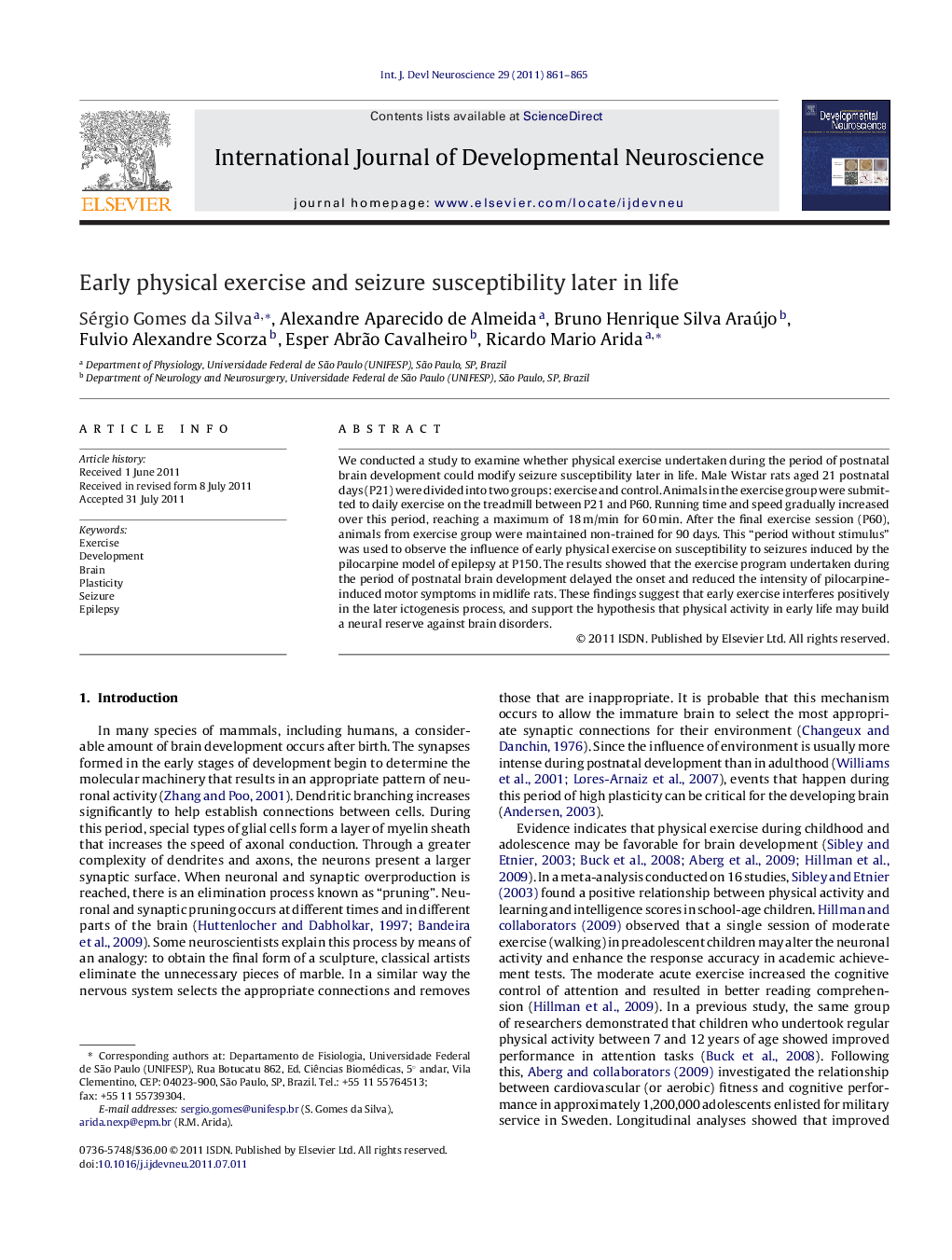| Article ID | Journal | Published Year | Pages | File Type |
|---|---|---|---|---|
| 2786318 | International Journal of Developmental Neuroscience | 2011 | 5 Pages |
We conducted a study to examine whether physical exercise undertaken during the period of postnatal brain development could modify seizure susceptibility later in life. Male Wistar rats aged 21 postnatal days (P21) were divided into two groups: exercise and control. Animals in the exercise group were submitted to daily exercise on the treadmill between P21 and P60. Running time and speed gradually increased over this period, reaching a maximum of 18 m/min for 60 min. After the final exercise session (P60), animals from exercise group were maintained non-trained for 90 days. This “period without stimulus” was used to observe the influence of early physical exercise on susceptibility to seizures induced by the pilocarpine model of epilepsy at P150. The results showed that the exercise program undertaken during the period of postnatal brain development delayed the onset and reduced the intensity of pilocarpine-induced motor symptoms in midlife rats. These findings suggest that early exercise interferes positively in the later ictogenesis process, and support the hypothesis that physical activity in early life may build a neural reserve against brain disorders.
► Pilocarpine-induced first motor symptoms were delayed in midlife rats trained in the adolescence. ► The intensity of motor symptoms were also reduced in midlife rats trained in the adolescence. ► These results suggest that early exercise interferes positively in the later ictogenesis process. ► Physical activity in early life seems to build a neural reserve against brain disorders.
